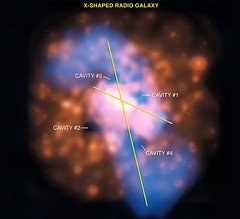 I recently read something about someone trying to correct something in a Wikipedia entry based on his current research who then had his correction removed and a good finger-wagging explanation of the Wikipedia rules given to him. Their point is that Wikipedia is not the place for cutting edge fact and that only commonly held and therefore well documented information. The direct quote was something like "Wikipedia is not about what's true. Wikipedia is about what's verifiable." Now I can understand their point (although I'm not sure this is the best strategy especially if they do not let users know this in even a subtle way) but it seems to conflict a little with their having a page listing common misconceptions, doesn't it? If these are truly common, then they represent the popular opinion and until they become the UNpopular opinion, wouldn't the truth be considered a bit too cutting edge? I'm afraid that Wikipedia rules cannot reasonably contain both the cake and the eating of this particular cake.
I recently read something about someone trying to correct something in a Wikipedia entry based on his current research who then had his correction removed and a good finger-wagging explanation of the Wikipedia rules given to him. Their point is that Wikipedia is not the place for cutting edge fact and that only commonly held and therefore well documented information. The direct quote was something like "Wikipedia is not about what's true. Wikipedia is about what's verifiable." Now I can understand their point (although I'm not sure this is the best strategy especially if they do not let users know this in even a subtle way) but it seems to conflict a little with their having a page listing common misconceptions, doesn't it? If these are truly common, then they represent the popular opinion and until they become the UNpopular opinion, wouldn't the truth be considered a bit too cutting edge? I'm afraid that Wikipedia rules cannot reasonably contain both the cake and the eating of this particular cake. The other odd thing is that many of these "common misconceptions", to my mind, aren't really misconceptions but rather misunderstandings of the words being used. Take for example, the page's second point under Astronomy:
The other odd thing is that many of these "common misconceptions", to my mind, aren't really misconceptions but rather misunderstandings of the words being used. Take for example, the page's second point under Astronomy:Black holes, contrary to their common image, do not necessarily suck up all the matter in the vicinity.It's explained that black holes do have a specific mass and therefore can have less that other stars making them less "sucky" in terms of gravitational pull. Perhaps they think that most people have this image of black holes just continually sucking in all matter from everywhere regardless of how far away it is. Perhaps that IS what most people think but the crucial "truthiness" in this hinges around the word "vicinity". I think the point about black holes (and I am no physicist) is that there IS a vicinity (i.e. the space inside the event horizon) in which black holes suck up all matter.
 There's also the fact that "The United States Supreme Court did not actually rule that tomatoes are a vegetable, instead of fruit, in the botanical sense" despite some thinking that it did. Or that "The word theory in the theory of evolution does not imply mainstream scientific doubt regarding its validity" while certainly many people like to pull that one in anti-evolution arguments. These are, at base, problems with the public misunderstanding the meanings of words, not the concepts.
There's also the fact that "The United States Supreme Court did not actually rule that tomatoes are a vegetable, instead of fruit, in the botanical sense" despite some thinking that it did. Or that "The word theory in the theory of evolution does not imply mainstream scientific doubt regarding its validity" while certainly many people like to pull that one in anti-evolution arguments. These are, at base, problems with the public misunderstanding the meanings of words, not the concepts.This would all be fine if this was it. I could mentally translate "list of common misconceptions" to "list of common faulty word usage" but for a line that stands out in this list:
"Irregardless" is a word.And for proof, someone has basically given the fact that it's in the dictionary. It's used commonly enough to qualify as a word. I'm not sure I like that idea, that there's a number of times said or people saying it beyond which any given configuration of sounds becomes a word. In that case "um" has been a word for a long time. Ok, even granting that, I guess what most people SHOULD say instead of "it's not a word" is that "it shouldn't be a word". That's what I'm thinking when I hear it used. "Why are you saying that? If you stopped for just a second and listened to what you're saying, you'd realize that there's no point in saying 'irregardless'! So just stop!" Ok, fine it's a word. That doesn't mean that it means what you think it means. Please stop saying things like that before some reasonably intelligent lifeform passes over Earth because words like that disqualified us from being labelled 'advanced'. That and 'orientate'. /shudder

No comments:
Post a Comment